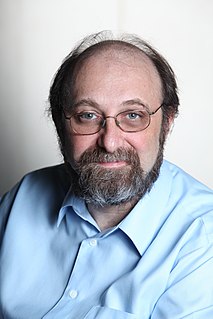A Quote by Oliver Sacks
The rhythm of music is very, very important for people with Parkinson's. But it's also very important with other sorts of patients, such as patients with Tourette's syndrome. Music helps them bring their impulses and tics under control. There is even a whole percussion orchestra made up exclusively of Tourette's patients.
Related Quotes
I am a spiritual person. I'm a Catholic. I treat my patients, the dead patients, as live patients. I believe there is life after death. And I talk to my patients. I talk to them, not loudly but quietly in my heart when I look at them. Before I do an autopsy, I must have a visual contact with the face.
We need money to scale up the services that bring medicine to mothers. The United States government's doing that. There's a global fund that's providing money. mothers2mothers provides for mothers who come in who don't have education, who don't have support. mothers2mothers employs mothers with HIV, mothers who were patients recently in the very same facilities. We take those mothers who were patients who've had their babies, we bring them back, we train them, we pay them, to be health care professionals.
We'll work on relaxation strategies and also changing the times you go to bed will actually make them sleep a little bit less for a few nights so their body's natural sleep drive starts to kick in. That is very effective in about 60% to 70% of patients who do it, four to eight sessions, not even every week; it works for 60% to 70% of patients.
It's very important that we do show appreciation for those who go to work in raising awareness. You know, Tourette Syndrome is not well known. There's not a lot of government money and research in it. But people are dying inside every day because they're suffering with it, and I think word needs to get out.
Operating-room errors hold a special terror for patients, if only because they seem like the most avoidable kind of complications. The occasional horror stories of patients who have the wrong leg removed or the wrong knee replaced generate the most headlines, as do tales of patients whose identities are mixed up entirely.




































